Brexit: DUP boycott Brexit discussion with Irish TDs
- Published
- comments
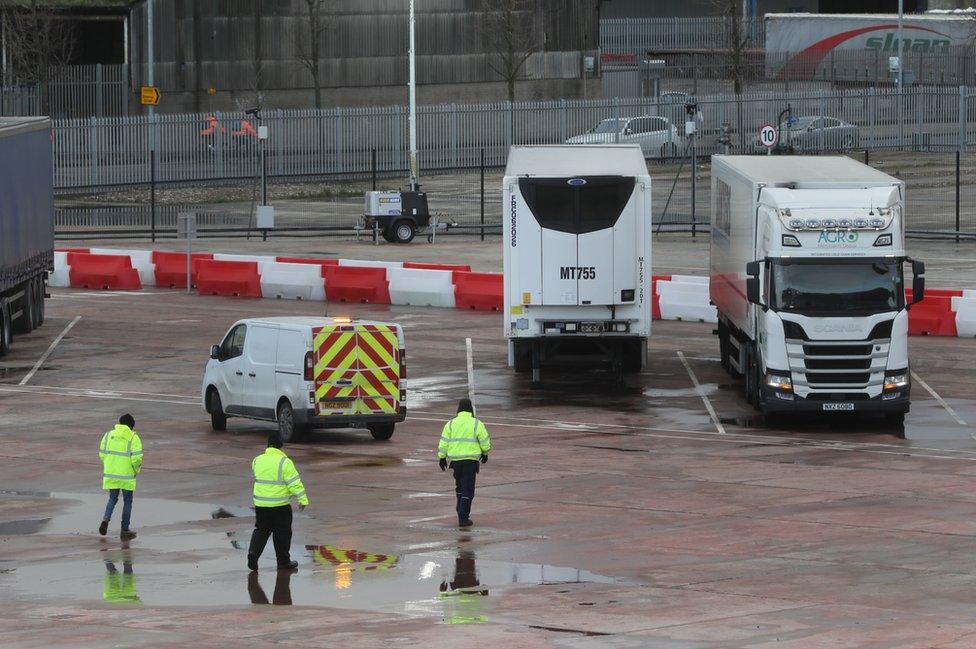
Getting goods across the Irish Sea border involves a range of new processes, checks and documentation
DUP assembly members have stayed away from a discussion about Brexit and the Good Friday Agreement as part of their opposition to the NI Protocol.
Members of Stormont's executive committee were hearing evidence virtually from TDs (Irish members of parliament) and MPs.
The Democratic Unionist Party said it would stop north-south activities.
It comes as NI businesses have told a Westminster committee they need an extension of Brexit "grace periods".
MPs on Westminster's NI Affairs Committee were also examining the protocol, taking evidence from logistics companies.
These relate to the 'Irish Sea border', where some EU rules relating to customs and product standards are not yet fully enforced on GB-NI trade.
The UK government has asked the EU for extensions on rules, with the two sides planning to discuss the issue on Thursday.
The first of the grace periods are set to expire at the end of March, which would mean new processes for supermarkets and parcel companies.
'Unhelpful and sad'
Referring to the DUP boycott of the executive committee discussion with TDs, chairperson Colin McGrath MLA said their absence was "unhelpful and sad".
Describing the action as "disappointing", he added, if people are "not prepared to be part of the solution you are part of the problem".
The meeting was attended by a range of parties including the UUP, the SDLP, Sinn Féin, Alliance Party, Fianna Fáil and Fine Gael.
Sinn Féin MP Michelle Gildernew said it was "unfortunate" that not all parties were represented in the discussion, explaining that Brexit has created "unprecedented challenges on the island of Ireland".
Social Democratic and Labour Party (SDLP) MP Claire Hanna added that she had "regret" that the DUP were not involved.
Ulster Unionist Party (UUP) MLA Doug Beattie was the only unionist to take part.
In a statement, the DUP said: "With the east-west relationship strained and many unable to get goods from GB-NI then of course the north-south relationship will not continue as normal.
"Northern Ireland needs permanent solutions which frees us from the protocol," it continued.
'Self-certification'
Meanwhile, NI-based logistics companies gave evidence to Westminster's NI Affairs Committee earlier and called for grace periods to be extended.
Nick McCullough, who manages the NI operation of DFDS, a large global logistics firm, told MPs that the time taken to deal with the initial changes in January means businesses will struggle to be ready for more change in April.
He said: "January has really set us back significantly."
Sarah Hards, from AM Nexday, told the NI Affairs Committee an extension was "key" and needed to be announced well in advance.
She said that other longer term measures were needed to simplify the processes for GB-NI trade.
As an example she said a trusted trader scheme, which would reduce the certification requirements for food products, would be an important simplification.
"Most businesses want this work and it would make it so much easier if there was self-certification."
That was echoed by Stephen McAneney from customs broker Allied Fleet Services.
He said: "The processes do need reviewed, there are too many disjointed systems that hauliers and traders have to go through to get their goods moved across."
He said greater use could be made of the supermarkets' own stock audit systems.
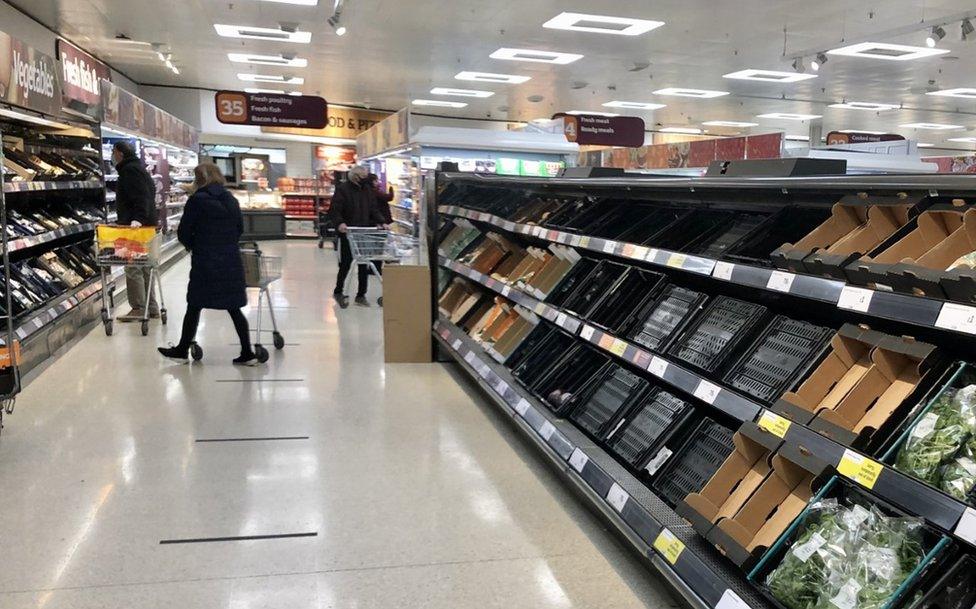
Some NI supermarkets have had issues importing goods from Great Britain
The businesses also said that many logistics firms had experienced decreased turnover and profitability in January but there was some evidence that their customers were starting to get to grips with the new system.
Mr McAneney said he was aware of a engineering business in Dungannon which had delivered a load to France via the UK landbridge without any problems and had picked up work from the French company as a result.
"They're now recruiting 15 fabricators because they have this contract in France."
The chair of the committee, Simon Hoare, summed up the evidence as suggesting the NI Protocol is "neither Armageddon nor nirvana".
He added that businesses are making clear they would like further time limited grace periods as they did not get a proper transition period, in lieu of the fact that the protocol was only agreed on 8 December.
MEPs write to European Commission
Meanwhile, the call from businesses comes as it emerged eight Irish MEPs have written to the European Commission to also push for an extension of grace periods for Irish Sea border checks.
The MEPs said a limited extension would "protect against avoidable difficulties".
The letter is a cross-party initiative from Fianna Fáil, Sinn Féin, the Greens and left independents.
It criticised the commission for the Article 16 controversy and said the EU as a whole needs to examine its decision making to ensure "appropriate sensitivity".
It suggested a number of measures to strengthen the "connective tissue" between Stormont and the European Parliament.
They include the creation of a parliamentary delegation to the assembly to "facilitate direct dialogue" on any upcoming EU legislation which would impact Northern Ireland.
Related topics
- Published31 January 2021
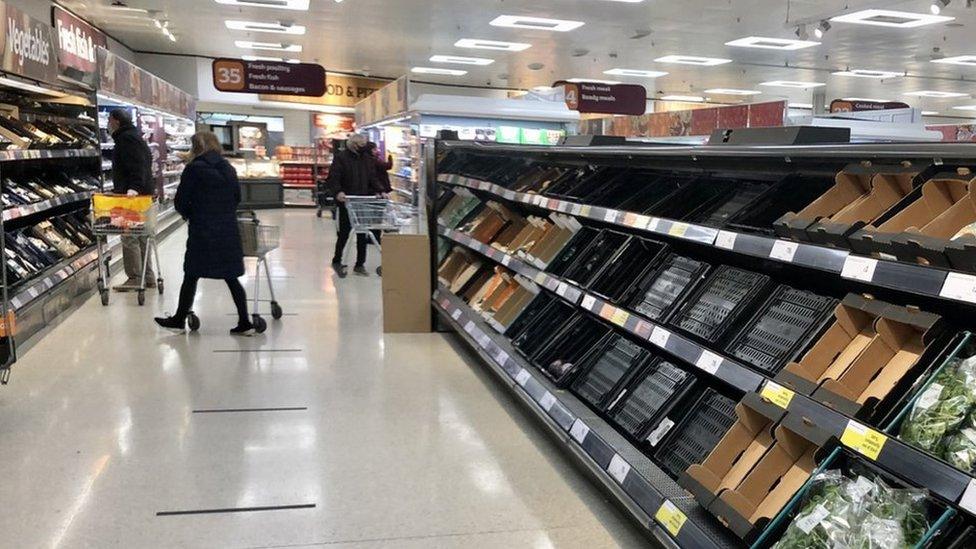
- Published2 February 2021
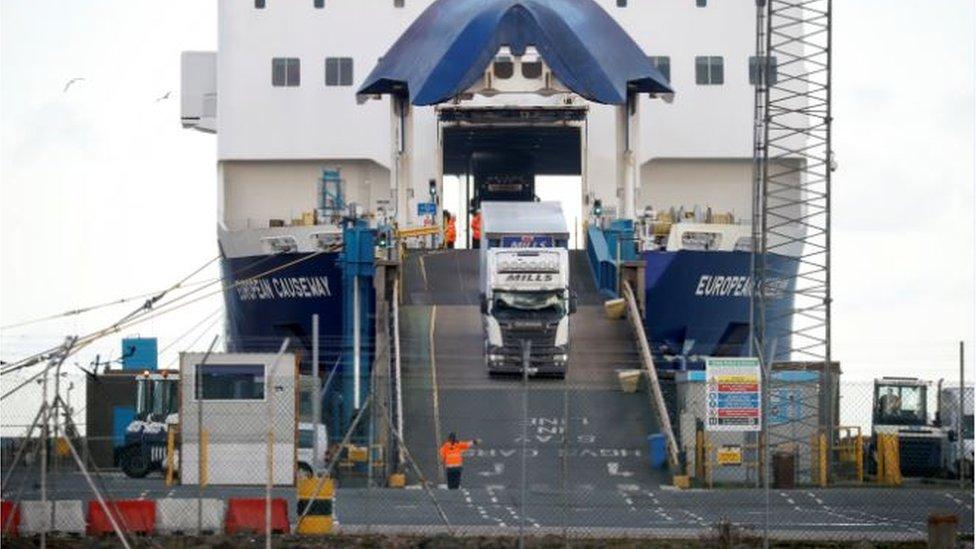
- Published30 January 2021

- Published30 January 2021
- Published31 January 2021
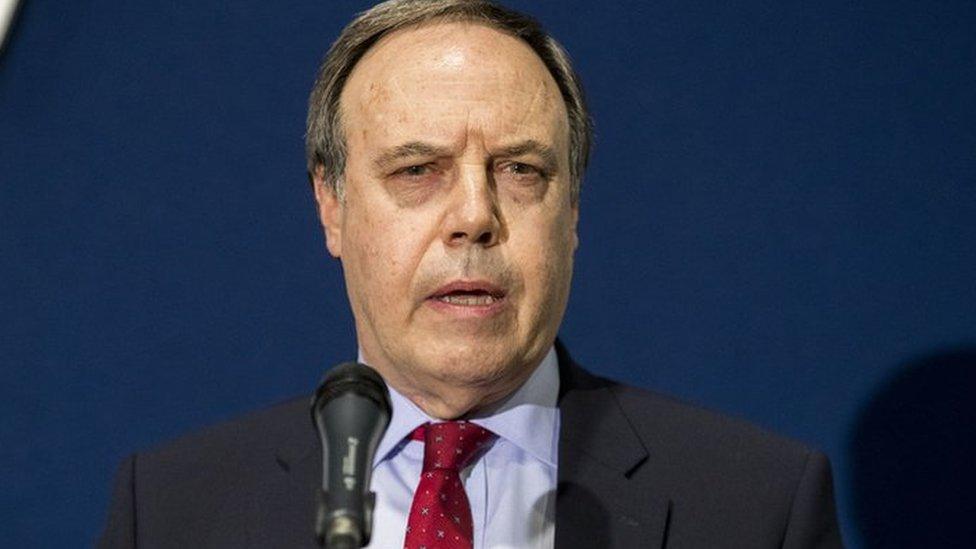
- Published30 January 2021
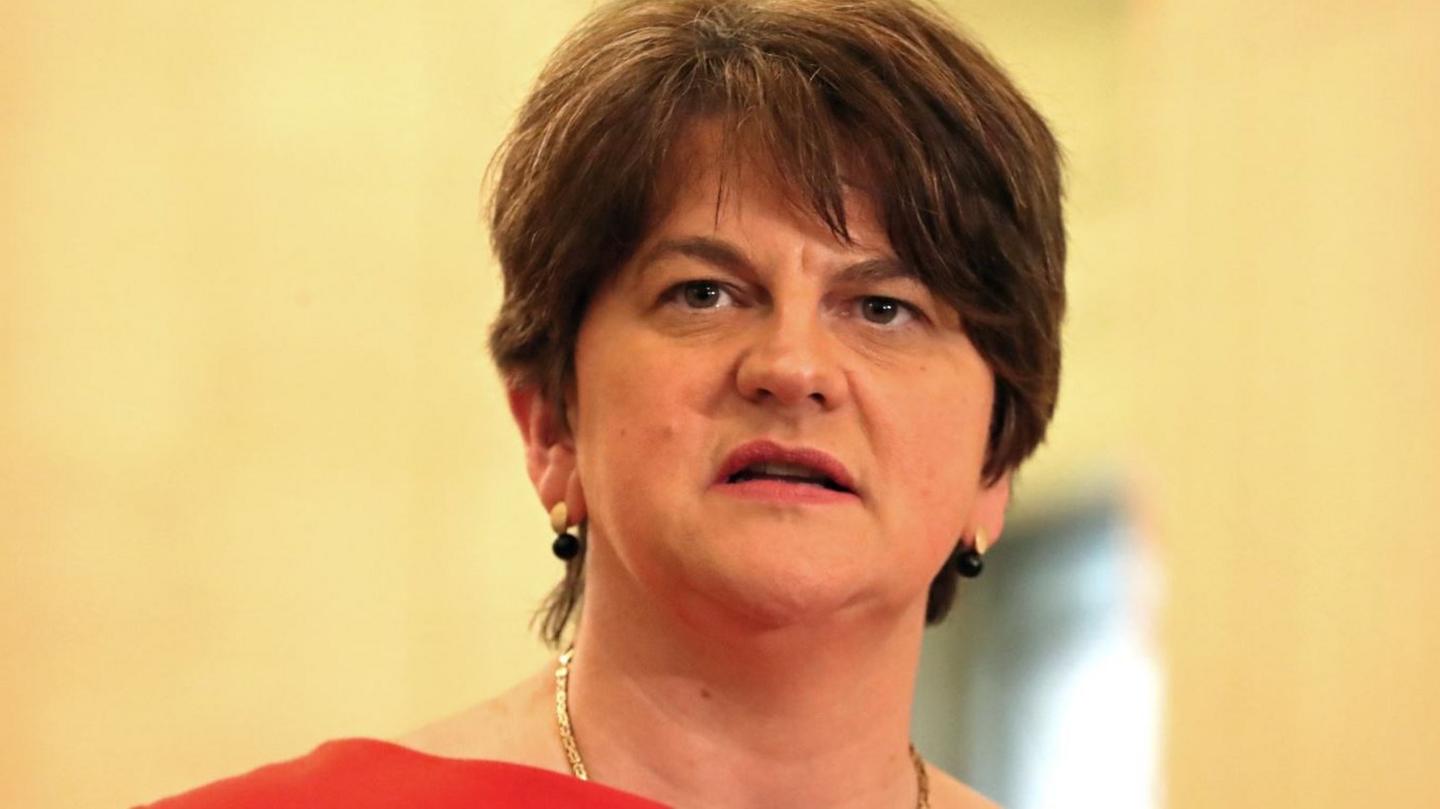
- Published2 February 2021
